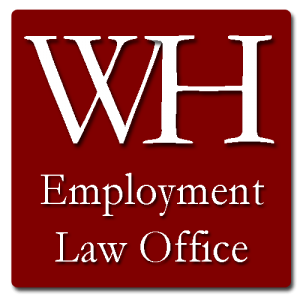Retaliation
Employees should report acts of discrimination and harassment. Sometimes after an employee reports discrimination or harassment to a supervisor, manager, owner, or HR, the employee suffers an adverse employment action such as: termination, harassment, demotion, isolation, a harmful job change, etc. If the employer causes the reporting employee to suffer an adverse employment action because of the reported discrimination or harassment, then that is unlawful retaliation.
California law also protects employees who report discrimination directed toward another employee. Similarly, an employee who opposes an employer’s discrimination or harassment of another employee, applicant, apprentice, intern, volunteer, or third party may not suffer an adverse employment action because the employee opposed the discrimination or harassment.
If you are an employee who feels that you have suffered discrimination, harassment, or retaliation, please do not hesitate to contact Ward Heinrichs to get more education about your situation.
Likewise, employers should feel free to discuss potential work place discrimination, harassment, and/or retaliation that may have occurred on the job. Employers should do an impartial investigation and analysis of the situation and take adequate remedial action when necessary.
California has many different laws that prohibit work place retaliation when employees engage in protected activity. For instance, the California Labor Code has 43 different retaliation statutes: Labor Code §§ 96(k), 98.6, 230(a), 230(b), 230(c), 230(e), 230(f), 230.1, 230.2(b), 230.3, 230.4, 230.5, 230.7, 230.8, 232(a) & (b), 232.5, 233, 244, 245-49, 432.7, 432.8, 432.9, 752, 1019, 1024.6, 1025-28, 1030-33, 1041, 1101, 1102, 1102.5(b), 1171, 1197.5, 1198.3, 1311.5, 1512, 2814, 2929(b), 2930, 6310, 6311, 6399.7, 6403.5. Other California Codes have retaliation protections too.
Those laws protect employees who whistle blow, exercise constitutional rights, seek to enforce work place rights, participate in legal processes and hearings, and who engage in other types of protected activities.
Two of the most commonly invoked retaliation laws relate to adverse employment actions (termination, demotion, layoff, etc.) directed at employees who seek protections under the anti-harassment and anti-discrimination laws of the Fair Employment and Housing Act (FEHA) (Government Code §12940 et seq.) and who seek protections under a California Whistleblower law (Labor Code §1102.5 et seq.).
Under FEHA, if an employee reports discrimination or harassment or opposes an act of discrimination or harassment, the employer may not terminate, demote, reduce wages, isolate, etc. the employee for reporting or opposing discrimination. In many cases, the employer may not take those adverse actions even if the employee was not correct.
Likewise, a whistleblower can report perceived illegal activity to the government, law enforcement, a person in authority, or an employee with authority to investigate the activity if the reporting person has “reasonable cause” to believe that information discloses a violation of a statute or regulation. If the employer retaliates under those circumstances, then the adverse action would violate the whistleblower anti-retaliation law.
Other retaliation laws protect many other types of protected activity, such as: sick leave, work place safety, jury duty, domestic violence victims, victims of crimes, teacher-parent school activities, non-work related political activity, etc.
I offer free consultations to both employers and employees. Sometimes employers need counsel before they terminate a person when the activity might be protected. When employees suffer a termination or other adverse employment action under circumstances that might be protected, I am equally available for consultation.
To speak to Mr. Heinrichs call: 858-292-0792
A receptionist will answer and will connect you to him. If he is unavailable, the receptionist will leave a message, and he will return your call.
